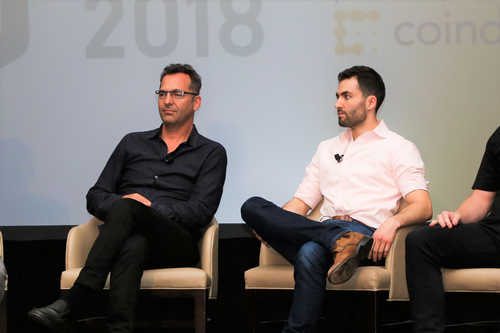The Malta Financial Services Authority (MFSA) called out the “COINMALEX” and “Crypto Foxtrades” crypto exchanges in twin warnings Wednesday. Both entities had claimed to be licensed, registered or domiciled in Malta, all of which MFSA denied.
Malta’s financial regulator has issued warnings against two crypto websites that falsely claimed to be licensed by the nation.
COINMALEX’s “about” page features a document purporting to be from the “Malta Business Registry”, a real institution within the small European island state. The document’s letterhead prominently displays the British royal coat of arms. Malta ceased using that icon when it gained independence from Britain in 1964.
Crypto Foxtrades’ “about us” page is more forthright about its alleged Malta ties. It claims to be “licensed and regulated as a Category 3 Investment Services provider by the Malta Financial Services Authority.” That is a real category, however MFSA insisted that Crypto Foxtrades is not licensed under it.
“The MFSA wishes to alert the public, in Malta and abroad, that Crypto Foxtrades is NOT a Maltese registered Company NOR licenced or otherwise authorised by the MFSA to provide the service of an exchange or other financial services which are required to be licenced or otherwise authorised under Maltese law”, MFSA said.
MFSA released a similar statement for COINMALEX.
Crypto Foxtrades and COINMALEX did not immediately respond to requests for comment.
MFSA has been closely policing allegedly Maltese crypto businesses since 2018, issuing warnings wherever and whenever it spotted one claiming phony licensure. Its efforts came to a head in February with the revelation that Binance, one of the world’s largest exchanges, had never operated in Malta and was never regulated by MFSA.

Mall of America to Showcase Winklevoss-Backed Crypto Payments
Cryptocurrency is coming to the Mall of America.
Flexa, a startup making it easier to use crypto for purchases in the real world, will be an advisory participant in a new demonstration store at America’s largest mall, which is located outside Minneapolis, Minn.
The store, meant to showcase new brands and technologies for enhancing the retail experience, is being organized by management consulting firm McKinsey.
“The big thing for us is showing that cryptocurrency is an extremely legitimate if not the best form of digital payment”, Flexa CEO Tyler Spalding told CoinDesk in an interview, adding:
“This is going to show the legitimacy of how this stuff works.”
The store – called Modern Retail Collective – will test out retail technology under real conditions. Starting Friday morning, the goal will be to help retailers understand which new technologies really add value. With some 8,000 U.S. brick-and-mortar stores closing this year alone, according to a press release from McKinsey, the question of generating value has taken on a new sense of urgency.
“Through this project, we’ll produce cutting-edge data and analytics to help retailers define their own vision for their store of the future”, McKinsey’s Praveen Adhi said in a statement.
Crypto at the mall
Flexa’s Spalding noted that McKinsey advises companies large enough that very modest cost savings can turn into real money across large chains.
“We’re able to have a solution that makes the consumer experience better and it achieves that kind of goal right out of the gate”, Spalding said.
Other non-crypto technologies will also be demonstrated in the store, including FaceCake (augmented reality), Chatter Research (conversational AI) and ComQi (digital signage). Square will also be participating in the store as a payments system, but without using its bitcoin technology, a spokesperson confirmed to CoinDesk.
The Flexa payment app, SPEDN, allows for instant payment with cryptocurrency because every transaction is guaranteed by a stake in Flexa’s FXC token. Flexa is backed by Gemini, the crypto exchange founded by Tyler and Cameron Winklevoss.
Flexa created this functionality so that other wallets could set themselves up as payment apps using Flexa’s technology, too. As those partners come online, they will also be able to make purchases at the demo store.
Spalding said that Flexa will have a significant footprint at the store, with staff there trained to show people how to use the SPEDN app and get cryptocurrency onto it. Spalding expects some of the retailers to offer small discounts for using crypto for payments because it offers them certain advantages.
“Zero fraud”, Spalding promised. “No chargebacks.”
Discounts or no, SPEDN will be one of the payment options on offer at every retailer in the collective, Spalding told us.
The store will be open at least through the holidays, Spalding said.
After the demonstration closes, Flexa looks forward to the data McKinsey plans to publish.
“We’ll be able to document all this and we’ll be able to participate in the research that McKinsey is really known for”, Spalding said, adding:
“We can really nail down: here’s what a transaction costs, here’s what the timing is.”


